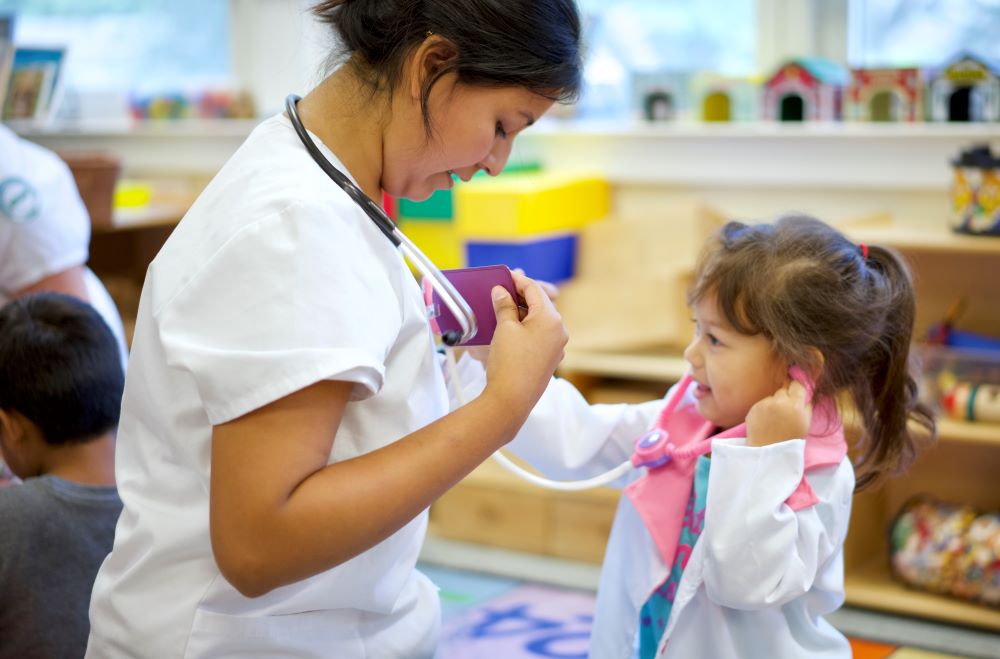
Health is everyone’s business. It is central to children’s overall growth and development. It is easy for busy staff to divide into areas of specialty, thereby creating silos in the work. Head Start programs, however, were not meant to operate in this way.
Head Start programs have an interdisciplinary team of content managers to support a comprehensive, whole-child approach toward serving children and families in programs. Everyone in Head Start programs, including staff, consultants, and community partners, support health, behavioral health, and safety.
It is important for the health manager to understand how health services is part of the overall comprehensive systems and service delivery in Head Start programs. A model that supports this coordinated approach is the Head Start Management Systems Wheel, which provides a visual representation of the 12 program management, planning, and oversight systems and how they intersect with services, leadership, and governance to support quality child and family outcomes.
School Readiness
Health services are critical to meeting a program’s school readiness goals. All the services a health manager oversees support the belief that school readiness begins with health.
Health connects to school readiness long before a child enters school. Healthy development continues to support learning throughout childhood and later life. Physical, cognitive, social, and emotional development are all essential ingredients of school readiness. The health manager can support the program’s staff and families to understand the essential connection between health and school readiness, including how health impacts attendance, assessments, and transition to kindergarten. The health manager can also help staff and participants understand this connection when the program’s management team is developing and monitoring progress on school readiness goals.
Tips and Strategies Related to Head Start Comprehensive Services
- Become familiar with all the components in the Head Start Management Systems Wheel and review the guiding questions in the self-assessment tool.
- Identify how you can support other teams and staff to work together to make health a priority for everyone in the program. One effective way to do this is to share valuable data about the health needs of children, families, and staff. You can find health data at many levels (e.g., your PIR data, community assessment, community, or state public health department).
- Look for ways to support healthy behaviors and evidence-based health practices in all areas of the program.
- Implement management systems that ensure frequent collaboration with other managers and staff. For example, how do you, nutrition staff, and educational staff coordinate services for children with food allergies?
- Ensure the nine health strategies to support school readiness are part of the program’s health services vision and practices.
Read more:
Resource Type: Article
National Centers: Health, Behavioral Health, and Safety
Audience: Directors and Managers
Last Updated: October 30, 2023